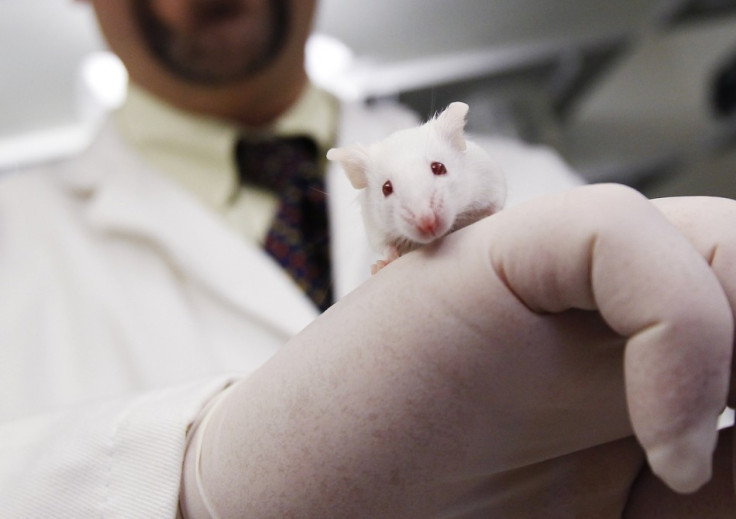Alzheimer's symptoms reversed in mice using plague-digesting protein injection

A protein that appears to reverse the symptoms of Alzheimer's in mice has been discovered by scientists. While the researchers urge caution over how it would work in humans, it has been dubbed a potential breakthrough treatment for the disease.
A team led by the University of Glasgow were looking at the protein IL-33. This is produced by the body but is particularly abundant in the brain and spinal cord – or central nervous system. People with Alzheimer's have previously been found to have less IL-33 in their brains compared to those without the disease.
In the study, published in the journal PNAS, researchers carried out experiments on mice that had been bred to develop Alzheimer's-like symptoms. The mice were injected with IL-33 and researchers then monitored changes to their behaviour and the plaques in their brains. A build-up of amyloid plaque deposits on the brain is a hallmark of Alzheimer's disease.
Findings showed that the symptoms of Alzheimer's in mice given the protein injection were reversed after just one week. Furthermore, they found it helped to clear the plaques and prevent further build-up.
Eddy Liew, one of the study leaders, said: "We found that injection of IL-33 into aged APP/PS1 mice rapidly improved their memory and cognitive function to that of the age-matched normal mice within a week."
Researchers believe IL-33 works by mobilising the immune cells in the brain to surround the plaques and digest them by inducing an enzyme known to degrade soluble amyloid. This led to the plaques being reduced in both number and size. It also appears to inhibit inflammation of brain tissue, which has previously been shown to help plaques form.
Liew said: "Alzheimer's disease currently has an urgent unmet clinical need. We hope that our findings can eventually be translated into humans. The relevance of this finding to human Alzheimer's is at present unclear. But there are encouraging hints. For example, previous genetic studies have shown an association between IL-33 mutations and Alzheimer's disease in European and Chinese populations.
Scientists are now preparing to begin a Phase 1 clinical trial to test the toxicity of IL-33 and the doses required. However, researchers say it will be a long time before it can be harnessed as a treatment for Alzheimer's.
"Exciting as it is, there is some distance between laboratory findings and clinical applications," Liew said. "There have been enough false 'breakthroughs' in the medical field to caution us not to hold our breath until rigorous clinical trials have been done."
Commenting on the study, James Pickett, head of researcher at Alzheimer's Society, said it is still "early days" and further work will need to be done to see if IL-33 works in the same way in humans. "The need to find treatments that can slow or stop the disease progression is greater than ever... This latest finding adds to our understanding of why targeting inflammation may be a promising approach."
© Copyright IBTimes 2025. All rights reserved.






















